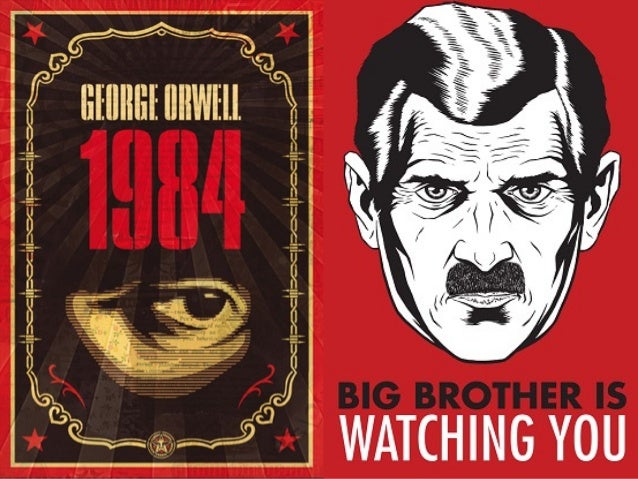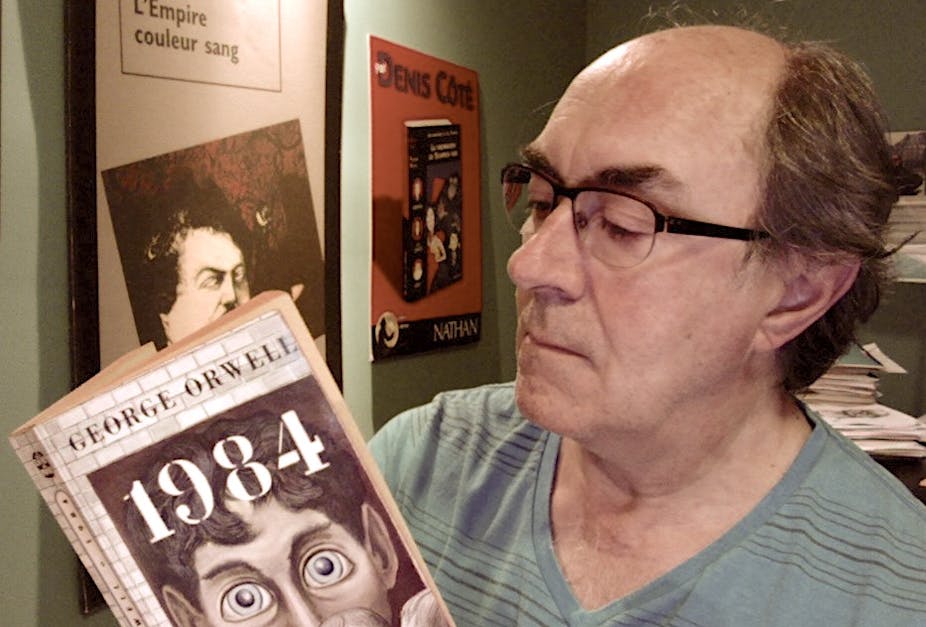Summary: Chapter I
In Orwell's masterpiece, the world is always at war. The enemy changes, but the war never ends. At one point, during a 'Hate Week' rally, the nation's alliances abruptly change and the speaker. Aug 19, 2014 Orwell Dev C free download. Get the latest version now. Orwell Dev-C is a Integrated Development Environment (IDE) for the C/C.
On a cold day in April of 1984, aman named Winston Smith returns to his home, a dilapidated apartmentbuilding called Victory Mansions. Thin, frail, and thirty-nine yearsold, it is painful for him to trudge up the stairs because he hasa varicose ulcer above his right ankle. The elevator is always outof service so he does not try to use it. As he climbs the staircase,he is greeted on each landing by a poster depicting an enormousface, underscored by the words “BIG BROTHER IS WATCHINGYOU.”
Winston is an insignificant official in the Party, thetotalitarian political regime that rules all of Airstrip One—theland that used to be called England—as part of the larger stateof Oceania. Though Winston is technically a member of the rulingclass, his life is still under the Party’s oppressive politicalcontrol. In his apartment, an instrument called a telescreen—whichis always on, spouting propaganda, and through which the ThoughtPolice are known to monitor the actions of citizens—shows a drearyreport about pig iron. Winston keeps his back to the screen. Fromhis window he sees the Ministry of Truth, where he works as a propagandaofficer altering historical records to match the Party’s officialversion of past events. Winston thinks about the other Ministriesthat exist as part of the Party’s governmental apparatus: the Ministryof Peace, which wages war; the Ministry of Plenty, which plans economicshortages; and the dreaded Ministry of Love, the center of the InnerParty’s loathsome activities.
 WAR IS PEACE
WAR IS PEACEFREEDOM IS SLAVERY
IGNORANCE IS STRENGTH
Orwell 1884
(See Important Quotations Explained)
From a drawer in a little alcove hidden from the telescreen,Winston pulls out a small diary he recently purchased. He foundthe diary in a secondhand store in the proletarian district, wherethe very poor live relatively unimpeded by Party monitoring. The proles, asthey are called, are so impoverished and insignificant that theParty does not consider them a threat to its power. Winston beginsto write in his diary, although he realizes that this constitutesan act of rebellion against the Party. He describes the films hewatched the night before. He thinks about his lust and hatred fora dark-haired girl who works in the Fiction Department at the Ministryof Truth, and about an important Inner Party member named O’Brien—aman he is sure is an enemy of the Party. Winston remembers the momentbefore that day’s Two Minutes Hate, an assembly during which Partyorators whip the populace into a frenzy of hatred against the enemiesof Oceania. Just before the Hate began, Winston knew he hated Big Brother,and saw the same loathing in O’Brien’s eyes.
Orwell 1.1 Review

Winston looks down and realizes that he has written “DOWN WITHBIG BROTHER” over and over again in his diary. He has committedthoughtcrime—the most unpardonable crime—and he knows that the ThoughtPolice will seize him sooner or later. Just then, there is a knockat the door.
Analysis: Chapter I
The first few chapters of 1984 aredevoted to introducing the major characters and themes of the novel.These chapters also acquaint the reader with the harsh and oppressiveworld in which the novel’s protagonist, Winston Smith, lives. Itis from Winston’s perspective that the reader witnesses the brutalphysical and psychological cruelties wrought upon the people bytheir government. Orwell’s main goals in 1984 areto depict the frightening techniques a totalitarian government (inwhich a single ruling class possesses absolute power) might useto control its subjects, and to illustrate the extent of the controlthat government is able to exert. To this end, Orwell offers a protagonistwho has been subject to Party control all of his life, but who hasarrived at a dim idea of rebellion and freedom.
Orwell 1.1 Pdf
Unlike virtually anyone else in Airstrip One, Winstonseems to understand that he might be happier if he were free. Orwellemphasizes the fact that, in the world of Airstrip One, freedomis a shocking and alien notion: simply writing in a diary—an actof self-expression—is an unpardonable crime. He also highlightsthe extent of government control by describing how the Party watches itsmembers through the giant telescreens in their homes. The panic thatgrabs hold of Winston when he realizes that he has written “DOWNWITH BIG BROTHER” evidences his certainty in the pervasiveomniscience of the Party and in the efficiency of its monitoringtechniques.
Comments are closed.